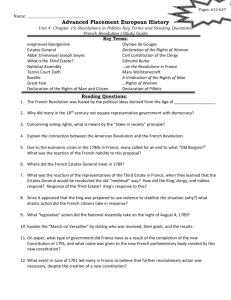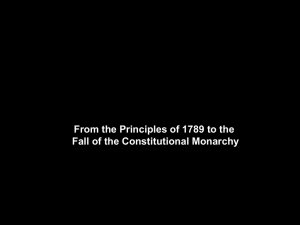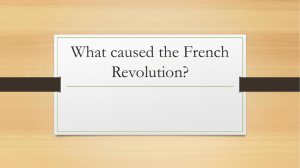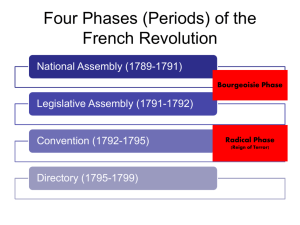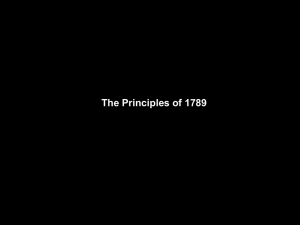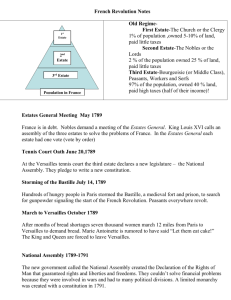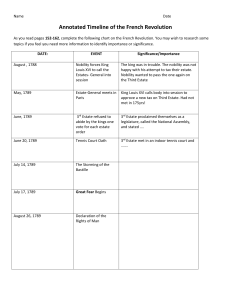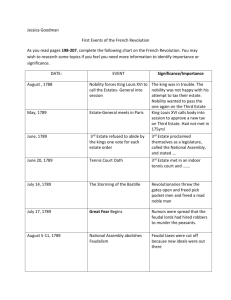French Revolution Moderate Phase
advertisement
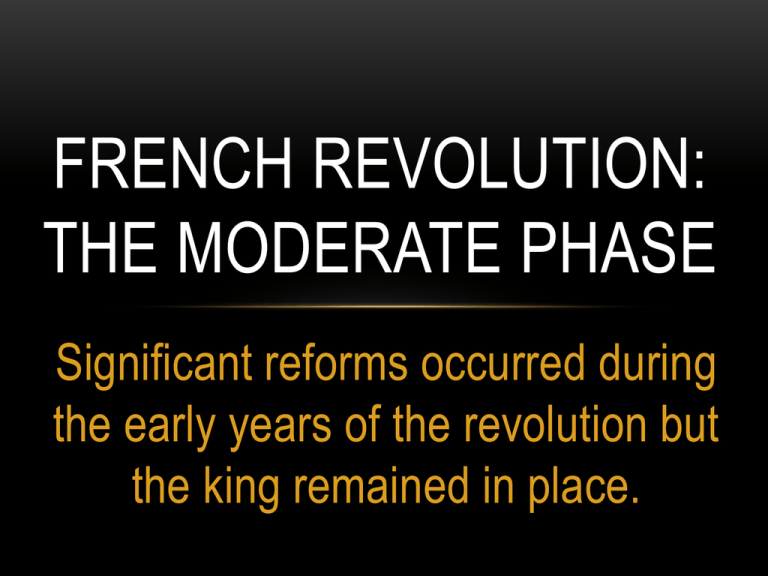
FRENCH REVOLUTION: THE MODERATE PHASE Significant reforms occurred during the early years of the revolution but the king remained in place. • (1789) Louis XVI summons the Estate-General • Had not convened since 1614 • 300 reps for 1st Estate, 300 reps for 2nd Estate and 600 for the 3rd • Each Estate had 1 vote • The Cahiers – list of grievances submitted (read pages 161-162) • June 17, 1789 3rd Estate transforms to the National Assembly • June 20, 1789 Tennis Court Oath – oath to make a constitution • Two violent events that forced action • July 14, 1789 Bastille falls • July to early August The Great Fear (peasant uprisings in the countryside) ACTIONS OF THE NATIONAL ASSEMBLY • Abolition of feudal privileges • End of feudal dues • End of Church tithes • End of tax exemption for nobles • End of old regime class distinctions • End of guild restrictions on trade and manufacturing • Adopted the Declaration of the Rights of Man • Financial Measures • Church lands seized and used to back paper currency, • Church land (and some noble domains) were broken up and sold at low prices to peasants • Religious Measures • Guaranteed religious freedom • Civil Constitution of the Clergy (the Catholic Church in France under government control) • Reform of Local Government • Old Regime provinces replaced with 83 departments ruled by local assemblies • Constitution of 1791 establishes a constitutional monarchy • king has limited executive powers • Elected Legislative Assembly makes the laws • Legislative members must be property owners • In writing, compare the Declaration of the Rights of Man (pg 165-167) with the Declaration of Independence (pg 167168)
